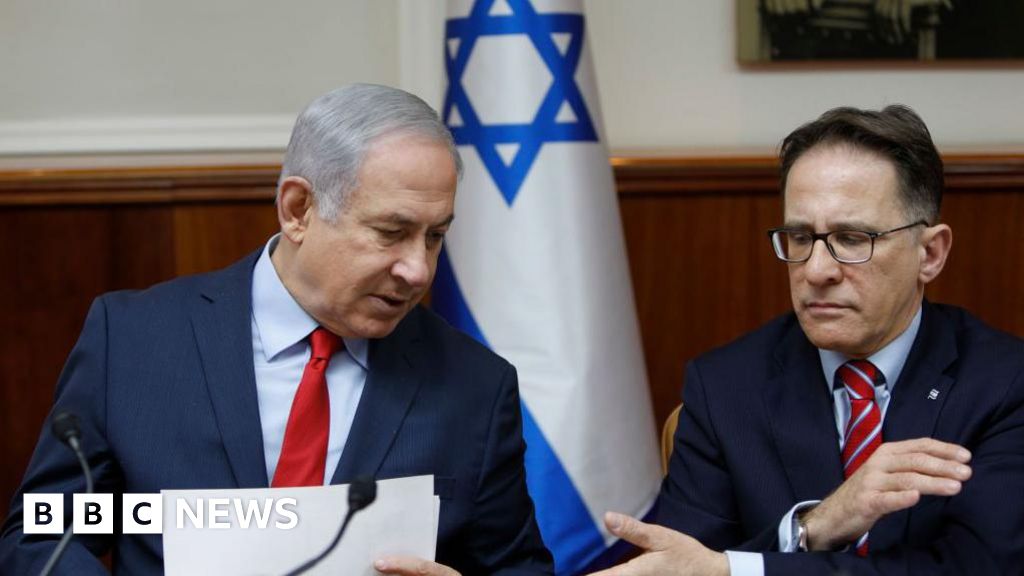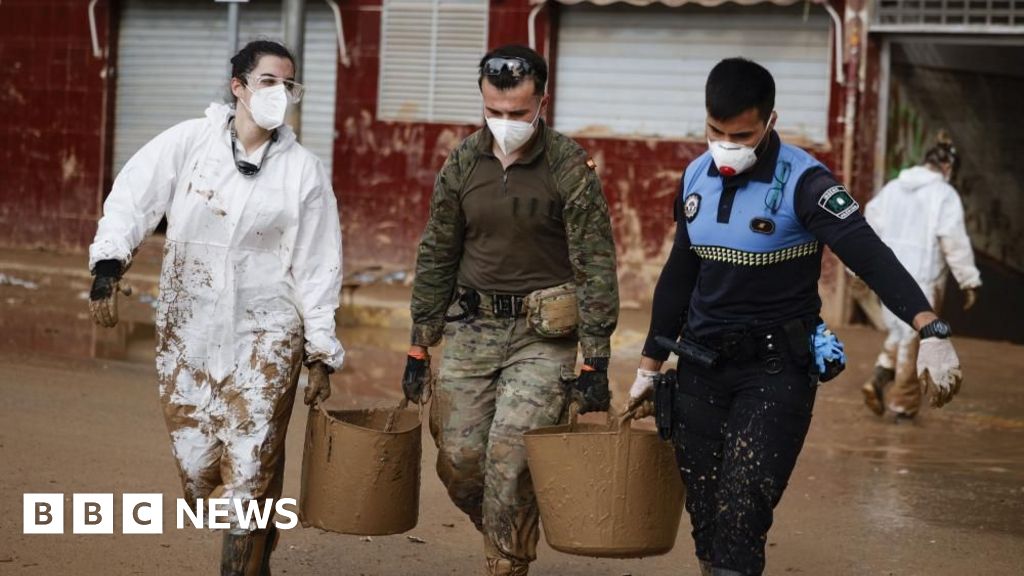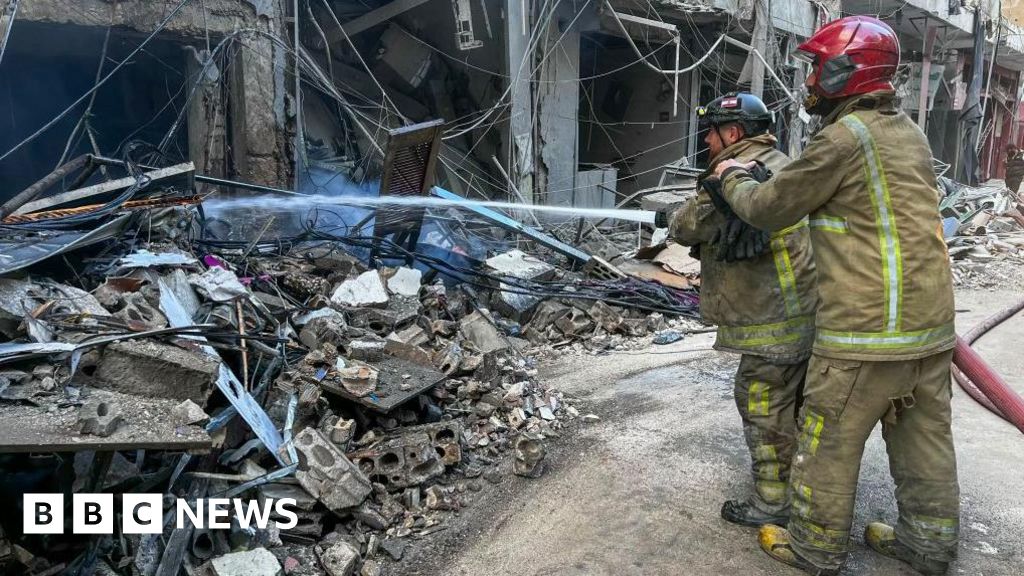ARTICLE AD BOX
By Waiyee Yip
BBC News
Image source, Netflix
Image caption, Recruits are depicted enduring physical and verbal abuse in Netflix series DPA military recruit is casually slapped in the face, while another is brutally beaten by a higher-rank soldier just because he feels like doing it.
These are scenes from the Netflix series DP, a South Korean drama which has generated buzz for exposing the dark side of the country's mandatory military service since launching on the platform. A second season is in the works.
On social media, some have criticised the show for being grossly exaggerated, amid the impression that military life in South Korea has become much easier in the past decade.
But the reality is that stories of hazing and military suicides have continued to blow up and make headlines. Just earlier this week, 15 people were charged over the death of an air force officer who killed herself after she was allegedly sexually abused.
For those who have had a taste of mistreatment during their service, DP has hit a bit too close to home.
"The drama has given me PTSD," one person commented on YouTube.
"It made all my nightmares come back and I had to stop watching the show," wrote another.
As writer and creator of the show, Kim Bo-tong, put it on Instagram: "DP was created to end the delusion that things are better now."
Culture of abuse
In South Korea, which is technically still at war with nuclear-armed North Korea, all able-bodied men are required to serve 18 months of military service, although rare exceptions are made. It is unpopular and some consider them wasted years.
Specifically, the show's title DP refers to "deserter pursuit", the team tasked with tracking down and capturing military deserters.
Mr Kim, who adapted the series from his popular digital comic of the same name, based some of its stories on his own experience as a former DP soldier.
Image source, Getty Images
Image caption, All able-bodied men in South Korea are required to undergo 18 months of military serviceWhile the deserters in the series have various reasons for running away from the camp, one theme consistently pops up: violence.
"When I saw the villain hit the soldier's neck, I had to pause the show, because that is exactly what I experienced," actor and model Kang Un, who served in the military from 2012 to 2014, told BBC Korean.
"I was beaten by my seniors a lot as well. When someone hits your neck like that 20 times, you end up in tears."
It is no coincidence that the show is set in 2014, when several high-profile cases of army abuse shocked the nation and sparked a public outcry.
In April that year, private Yoon Seung-joo, 23, had died after being beaten by members of the senior ranks - an incident uncovered only months later by a civilian-led rights group.
Before his death, he had reportedly suffered other forms of cruel treatment including being denied food and sleep.
Later that year, a sergeant named Im went on a shooting rampage, killing five fellow soldiers, allegedly in revenge for bullying. Then two soldiers died of apparent suffocation during captivity training, with hoods on their heads and their hands tied behind their backs.
The wave of anger over the incidents prompted a response from then President Park Geun-hye, who called for measures to rein in violence within the military.
The Ministry of National Defense implemented several changes, such as ensuring better communication channels between recruits and their family. Recruits were also allowed to receive visits on weekdays, when they were previously only allowed visitors on weekends or holidays.
Mobile phones, a game-changer
Recent changes - in particular smartphones - have led many to say that military life has improved dramatically.
In July last year, following a year-long trial, soldiers were officially allowed use of their mobile phones in camps. There are still some restrictions; they can only use their phones during designated hours, for example, and phones are forbidden in high security areas.
But observers say that the move has overall helped to ease the sense of isolation within the barracks.
Image source, Netflix
Image caption, A still from Netflix series DP, which has stirred painful memories for some young South Korean menMore crucially, mobile phones allow them to potentially expose any injustices within the secretive army camps.
"The soldiers can now feel more secure since they can always resort to calling for external help," said Cho Kyu-suk, a coordinator at the Military Human Rights Center, a civic group that advocates for soldiers' rights.
Phones also give recruits the "power of knowledge", he added. "They can find information on their rights and compare their situation with others instantly through social media."
Earlier this year, a photo of an army meal went viral, sparking debate over the poor treatment of the conscripts. Posted on Facebook by a young soldier, the picture showed a tray of rice, limp vegetables, and some pickles.
It was not supposed to have been leaked as recruits are banned from taking photos or videos. But the damage was done, and the military once again came under fire.
While such incidents may have been swept under the rug in the past, public outcry eventually led to the military pledging to raise the daily meal budget for conscripts by nearly 20%.
"The military cannot evade accountability any longer behind the shield of 'national security'," Mr Cho said.
Reported instances of violence have also fallen in recent years.
According to Defense Ministry data, 42 soldiers died by suicide in 2020, down from 62 the previous year, and a sharp drop from the hundreds counted during the 1980s.
But there's still much room for improvement, Mr Cho said.
He pointed to the military's discrimination against members of the LGBTQ community, with the army criminalising gay sex even though it is allowed in civilian life.
In March, the country's first transgender soldier who was forcibly discharged after gender-reassignment surgery, was found dead.
On Thursday, a court ruled the military had unlawfully discriminated against Byun Hee-soo and her dismissal should be annulled.
Against the backdrop of all these incidents, DP director Han Jun-hee believes that the show has a much bigger role than to just provide entertainment.
"I know there's some improvement in the military, but I think this series will play a role in keeping our guard up against military violence and remembering it," he said in a recent interview.
On Instagram, show creator Kim Bo-tong reposted a message that he received from a woman who said her husband had died in 2012 from military violence.
"I want to say thank you," the message read. "I feel as though we haven't been forgotten, and I hope more people will watch the show and become aware [of the military culture]."
Additional reporting by BBC Korean.

 3 years ago
68
3 years ago
68








 English (US)
English (US)